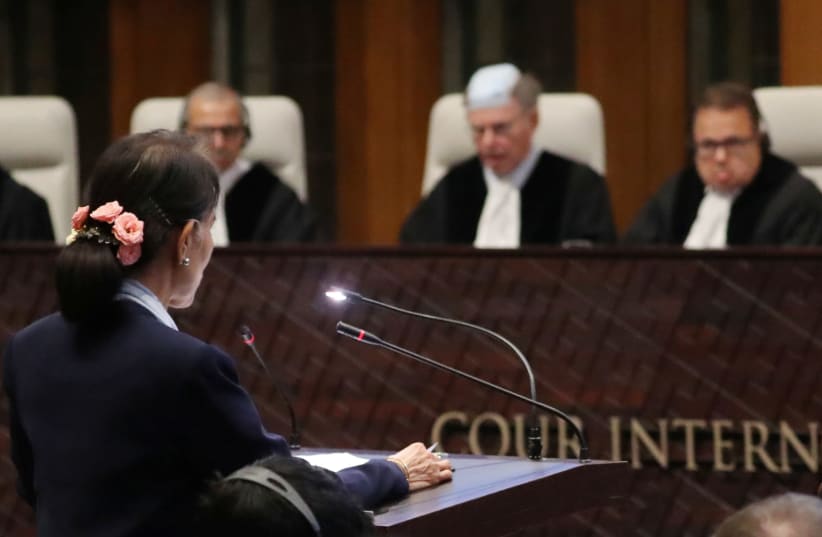They were arrested on Nov. 28 on a beach in the Irrawaddy river delta region while fleeing from western Myanmar's Rakhine State.
The group of 93, including 23 children, were brought to a court in the delta town of Pathein to listen to the testimony of an immigration officer who accused them of not having necessary documents for travelling.
If convicted they face up to two years in prison.
"They said they ran away because conditions are difficult over there," said defense lawyer Thazin Myint Myat Win, referring to Rakhine State where most members of Myanmar's Rohingya community live.
More than 730,000 Rohingya fled Myanmar to Bangladesh in 2017 to escape a military-led crackdown that U.N investigators have said was carried out with "genocidal intent" and included mass killings and rapes.
Some 600,000 Rohingya are living in conditions the United Nations has described as deplorable in Rakhine State, subject to restrictions on movement that touch almost every aspect of their lives including healthcare and education.
Many try to flee, often on boats bound for Malaysia, Indonesia or elsewhere in Southeast Asia, particularly after the end of the rainy season in November, when the sea is calmer.
Girls wearing colorful head scarfs and boys were lined up in the court to listen to the testimony before adults were brought in.
They cried as the judge spoke to them through a translator.
"You cannot make a noise in the court during the hearing. If so, you will lose your rights," judge Khin Myat Myat Tun told them.
One of the defendants told the court they had not illegally entered the country. The judge told him their lawyer would make that point and he did not need to do so now.
The next hearing is on Jan. 3.
In recent weeks, several groups of Rohingya have been arrested while attempting to flee by boat.In November, a Pathein court sentenced 14 people to two years in jail for illegal travel.
